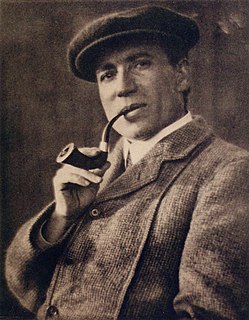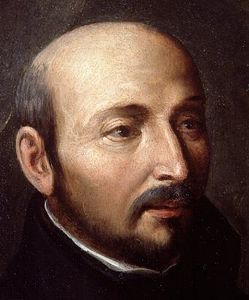Цитата Мартина Лютера
Что человек любит, то и есть его бог. Ибо он носит это в своем сердце; он ходит с ним день и ночь; он спит и просыпается с ним, будь то богатство или эгоизм, удовольствие или слава.
Связанные цитаты
На чем бы ни стоял человек, что бы он ни делал, к чему бы он ни приложил свою руку — в земледелии, в торговле и в промышленности, или свой ум, в мире искусства и науки — он есть, в чем бы он ни был, постоянно стоять перед лицом Божиим. Он занят служением своему Богу. Он должен строго повиноваться своему Богу. И прежде всего он должен стремиться к славе своего Бога.
Спит ли он или бодрствует, бежит ли он или идет, пользуется ли он микроскопом или подзорной трубой, или своим невооруженным глазом, человек никогда ничего не открывает, никогда ничего не догоняет, ничего не оставляет позади, кроме самого себя. Что бы он ни говорил или ни делал, он просто сообщает о себе. Если он влюблен, он любит; если он на небесах, он наслаждается; если он в аду, он страдает. Его состояние определяет его местонахождение.
Несчастен человек, который любит женщину и берет ее себе в жены, изливая к ее ногам пот кожи своей и кровь тела своего и жизнь сердца своего и отдавая в руки ее плоды труда своего и доход от его усердия; ибо, когда он медленно просыпается, он обнаруживает, что сердце, которое он пытался купить, свободно и искренне отдается другому человеку для наслаждения его скрытыми тайнами и глубочайшей любовью.
Каждый человек, который любит мир, каждый человек, который любит свою страну, каждый человек, который любит свободу, должен всегда иметь ее перед своими глазами, чтобы он мог лелеять в своем сердце должную привязанность к Союзу Америки и быть в состоянии придавать должное значение средства его сохранения.
Если человек действительно настроит свое сердце на волю Божью, Бог научит маленького ребенка сказать этому человеку, в чем состоит Его воля. Но если человек на самом деле не желает воли Божией, даже если он идет на поиски пророка, Бог вложит в сердце пророка ответ, подобный обману в его собственном сердце.
Что бы ни говорили о пресыщенности наслаждениями и о том отвращении, которые обычно следуют за страстью, всякий человек, имеющий что-нибудь сердечное и не жалко и безнадежно пресыщенный, чувствует, что его любовь усиливается его счастьем, и очень часто это лучший способ удерживать любовника, готового уйти, значит безоговорочно отдаться ему.
Только двум-трем людям во всем мире интересны воспоминания о ранней юности человека: родителю, вскормившему его; любимой жене или ребенку, возможно, впоследствии, кто любит его; самому себе всегда и в высшей степени — каковы бы ни были его действительное благополучие или несчастье, его нынешний возраст, болезнь, затруднения, слава или разочарования, — заря его жизни все еще ярко светит для него, прежние печали, радости и привязанности остаются с ним всегда верен и дорог.
В нынешнем веке человек доказывает свое отделение от своего Творца своим духом самодостаточности и решительного отвержения Бога. Нынешняя проблема между Богом и человеком заключается в том, примет ли человек оценку себя Богом, откажется ли от своей безнадежной борьбы с собой и возложит ли себя только на Бога, Которого одного достаточно, чтобы совершить необходимое ему преобразование.
Если мужчина любит по-настоящему,.... Он не считает препятствий, ограничений, причин, по которым его выбор может быть ошибочным или нецелесообразным. Он не обращает внимания на то, что могут подумать другие. В его сердце нет места для этого, ибо оно до краев наполнено невыразимой правдой его чувств.
Бог, по природе благий и бесстрастный, любит всех людей одинаково, как творение Своих рук. Но Он прославляет добродетельного человека, потому что в своей воле он соединяется с Богом. В то же время по Своей благости Он милостив к грешнику и, наказывая его в этой жизни, возвращает его на путь добродетели. Точно так же и человек с добрым и беспристрастным суждением одинаково любит всех людей. Он любит добродетельного человека за его природу и честность его намерений; и он любит грешника также по его природе и потому, что в своем сострадании он жалеет его за то, что он безрассудно спотыкается во тьме.
Какой бы ни была ситуация, в воспоминании о смерти есть награда и заслуга. Ибо даже человек, поглощенный миром, извлекает из этого пользу, приобретая отвращение к этому миру, так как он лишает его довольства и полноты его наслаждения; и все, что портит человеку его удовольствия и его аппетиты, является одним из средств избавления.









































